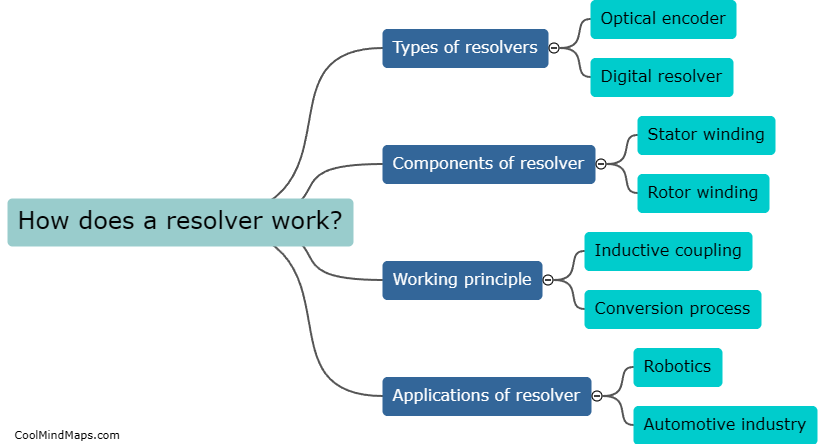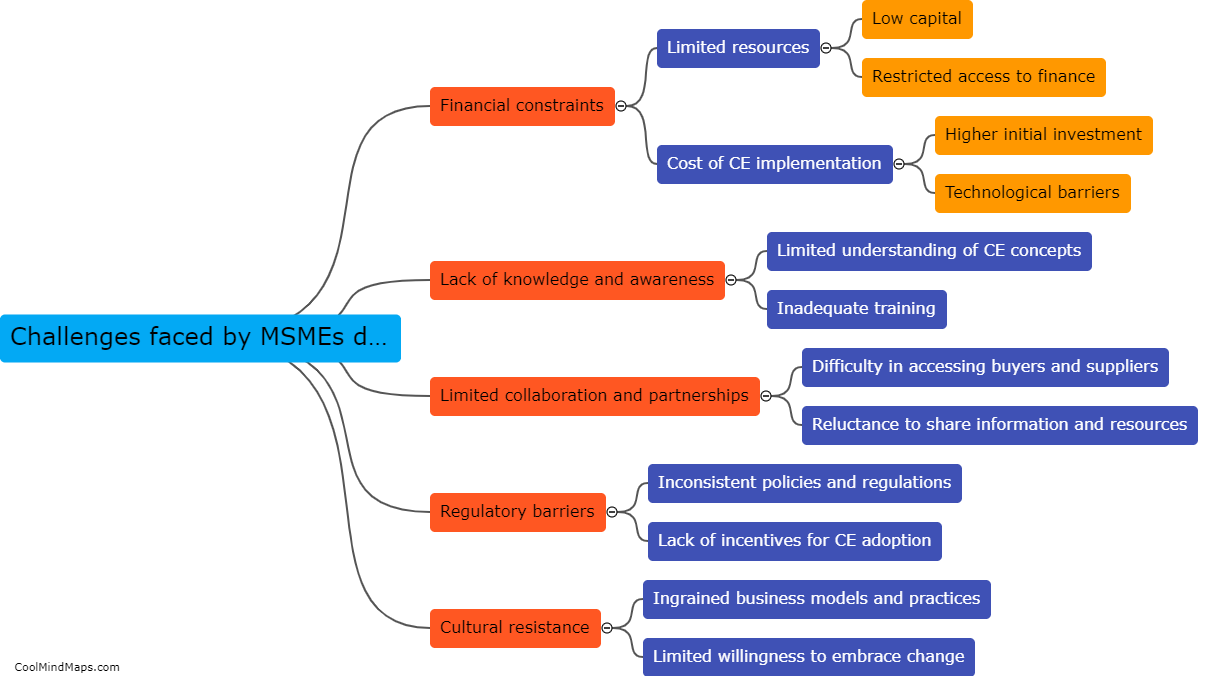What are the implications of CE implementation for policy and practice?
The implementation of Circular Economy (CE) has significant implications for policy and practice. Policymakers need to implement laws that encourage businesses to adopt sustainability practices and promote CE principles. In addition, measures should be taken to develop an appropriate infrastructure for recycling and to establish systems to incentivize recycling. Practitioners should adopt a new approach to designing, manufacturing and marketing products and services with the aim of reducing waste and the use of non-renewable resources. The adoption of a circular economy will also bring forth new economic opportunities, including job creation, innovation, and development of new market segments. Overall, a transition to a CE will require a considerable shift in both policy and practice, but the benefits of reduced waste and environmental impact will outweigh the costs in the long run.

This mind map was published on 22 June 2023 and has been viewed 110 times.











